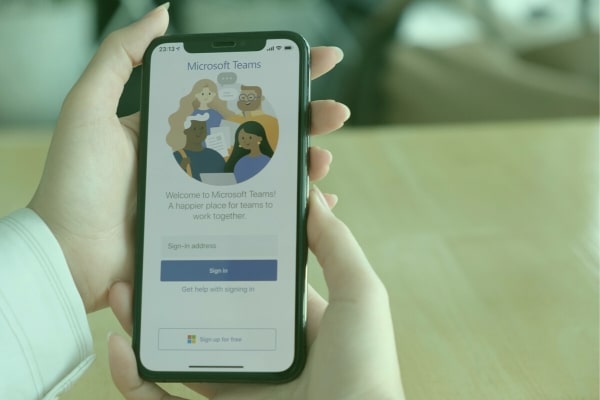What is International Privacy Day?
International Data Privacy Day (yes, it’s a thing!) is observed on January 28th.
The awareness campaign is led by the National Cyber Security Alliance in an effort to bring awareness to data privacy and to encourage both consumers and businesses to be mindful of the security of their digital data.
Your online data should be considered one of your most prized possessions.
Why don’t you take a few minutes to perform a quick audit of your online data using this checklist that we put together?
Audit Your Data Privacy Practices
1. Do you use two-factor authentication?
Two-factor authentication adds another layer of security to the login process for your online accounts.
It commonly involves linking your account with your mobile phone number and then sending a security code via text message which must be entered in order to login to your account.
Other methods that are used to secure account logins include adding a fingerprint to your account or using an authenticator such as Authy to generate secure access codes.
This will help prevent unauthorized persons from accessing your online accounts using an email and password alone.
2. Do you use strong passwords?
A strong password is comprised of a combination of lowercase and uppercase letters, numbers, and symbols (ex: !@#). A strong password will ideally be over 12 characters long.
Strong passwords should not contain an obvious combination of characters and should avoid using words that can be found in the dictionary.
There are programs out there that can run through millions of password combinations in minutes.
The password CAntGue$sMe! will be easier to “crack” than ecMa$GsenT!U.
Using a password generator can help you create secure, strong passwords to use for your online accounts.
3. Do you use a different password for each online account?
We get it. Remembering passwords is hard—especially if they’re strong!
Many people reuse the same password or a variation of the same password because it’s easy to maintain.
But keep in mind that reusing your passwords will not only make it easy for you to gain access to your accounts…it will make it easier for someone else to access your accounts too.
A password manager like LastPass can take the hassle out of remembering your passwords.
You can use LastPass with your internet browser and on your phone. You keep track of one “master” password and LastPass will keep track of the rest.
4. Do you keep your devices & software up-to-date?
Software and firmware need to be constantly maintained and updated to remain secure and bug-free.
Developers regularly release updates for their operating systems, programs, and mobile apps.
Be sure that you are accepting and installing your updates on a regular basis.
Outdated programs and software are known targets for those who can exploit security holes to access private data.
If you need help making sure your computer is up-to-date, we can help.
5. Have you checked your app permissions lately?
When we use a website or mobile app we agree to terms and conditions that include how those platforms will use our personal data.
The number of applications that have access to our data can multiply quickly over time.
We may begin playing games on Facebook, or we may start using a mobile app to track our workouts. This increases the points of access to our personal data.
It’s a good idea to revisit the settings and permissions on our apps and websites from time to time.
Delete accounts for websites that you do not use, remove access from 3rd party integrations that you don’t need or can’t remember adding.
Guard access to your personal data the same way you guard access to your home. Don’t give your keys away to just anyone.
Take Your Data Privacy Seriously
For more tips and advice on using good online safety habits, visit stopthinkconnect.org.
For more about why it’s important to keep your passwords secure, read Part 1 of our Password Series.
If you need help implementing a secure password regiment, feel free to give us a call. Our number is (502) 543-1877.





